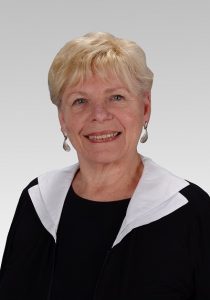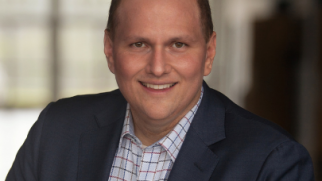Board member spotlight: Constance Garcia

Constance Garcia, MA, has a broad background innovating the delivery of health care services to high risk, hard to reach populations in a variety of settings including inner city hospitals, community-based health centers and the New York City Department of Health. She pioneered the establishment of primary care medical homes in senior citizen centers, public schools and homeless shelters and has held senior positions at CIGNA and Aetna managed care corporations, where she was responsible for launching their Medicare line of business. Ms. Garcia served as consultant in planning a 200-bed hospital and making operational an ambulatory care center in Caracas, Venezuela, where she lived with her family for seven years. Ms. Garcia currently serves as Lecturer in the Department of Health Sciences at Lehman College of the City University of New York.
1. What accomplishment are you the proudest of since joining the PAN Board four years ago?
I think the most important thing that we accomplished was to transition smoothly from being a smaller foundation to a very large foundation. We were able to bring on staff that enabled the infrastructure to support PAN’s rapid growth.
While working on the Board’s Finance Committee, and as we transitioned from a much smaller foundation to a larger foundation, we continuously looked at controls that had to be put in place to ensure that we were not only meeting the mission of PAN, but also ensuring compliance with all the regulations – the OIG regulations – and working to provide the best service that we could to our patients.
2. How do you think the industry is changing?
It is a very tough one and I think it is a very serious one, because we are dealing with peoples’ health.
A few years ago, I would have said that it is moving more and more toward a system where we begin to think of healthcare as a right rather than a privilege. That we were beginning to move towards thinking seriously about moving from the kind of healthcare system that we have now – where there are still so many underinsured and uninsured in the United States – to universal healthcare. The way things are today, I am very concerned about where we are moving in healthcare.
At one point, we said that the vision for PAN, the real and ultimate goal is for us to go out of business because there would be no need for co-pay assistance, everyone would have access to medication because of the ability to pay either through some form of subsidy or some new method to enable everyone to have access to the medication that they truly need and that is medically necessary.
3. What are you most passionate about when you think about PAN’s work, mission and impact?
I am most passionate about our ability to enable people who normally could not afford it (because of the out-of- pocket expense) to gain access to medications that they truly need. Therefore, in a way we are saving lives or at least helping people have a better quality of life.
I think that our mission is an extremely important one, but I wish that all co-pay assistance programs could go out of business eventually because there wouldn’t be a need for us. While there is still a need for us, we need to do everything that we can to continue to work.
I love the work that we are doing with building partnerships and relationships with advocacy groups, so that not only are we giving out grants but we are providing value to all of our enrollees through education, helping them understand how to possibly access other entitlement programs that they may be eligible for, to gain access to other benefits possibly and also how to manage their own disease in many different ways. I think we are doing a great job because we are expanding all of that and I hope that we can continue to do that.
Was this helpful?
